Introduction
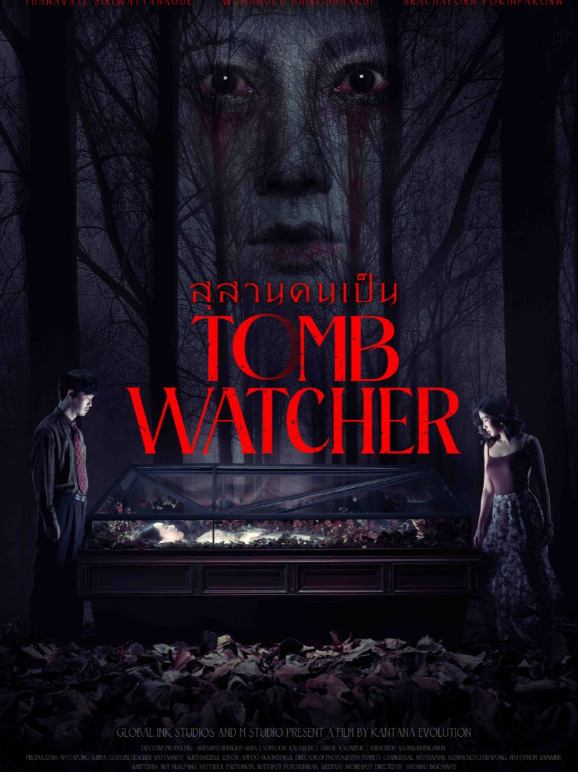
About Tomb Watcher
Asian horror movies are different from Western horror movies because they usually don't lean on the often overused gore and "loud music" jumpscares. Instead, they're mostly silent, and the fear comes from psychological jabs. From the emptiness, or from what you can't see or run from.
As such, Asia has popped out a few surprising gems, like The Ring, The Grudge, and The Wailing. Now, Netflix has bet on another title: Tomb Watcher. This Thai psychological thriller was directed by Vatanyu Ingkavivat and starred Woranuch Bhirombhakdi as Lunthom, Thanavate Siriwattanagul as Chev, and Arachaporn Pokinpakorn as Rossukhon.
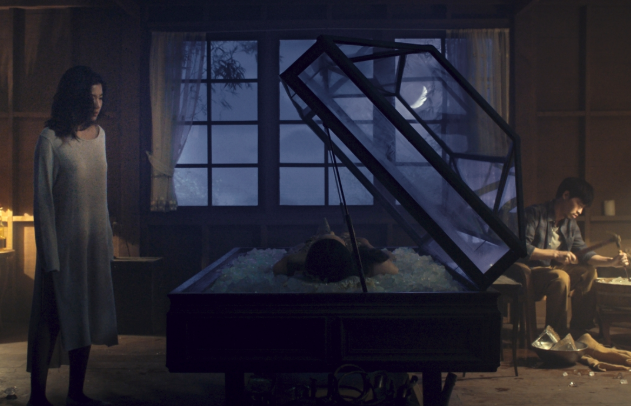
Tomb Watcher follows Chev, a widower who moves into an isolated house with his lover, Ros. The problems start straightaway. To inherit the fortune left by Chev's recently deceased wife, Lunthon, they need to spend one hundred days in that house, in the middle of the forest, next to her body, which is preserved in a glass tomb.
Forced to coexist with one another, the two lovers see themselves in fertile ground for something worse than a few sordid memories. Bit by bit, the isolation brings forth tension, resentment, and supernatural phenomena that turn the entire experience into a nightmare.
Despite this curious premise, the movie doesn't take too many risks and follows a pretty obvious script.
The symbolism is one of its greatest strengths, considering the glass tomb is not only a morbid detail but also a reflection of the past, which insists on "haunting the narrative" and unveiling secrets that can't be buried. Still, the script leans heavily on a few horror clichés, like predictable jumpscares, shadowy figures, and creaking doors, which can be frustrating if you're looking for something new.
Review
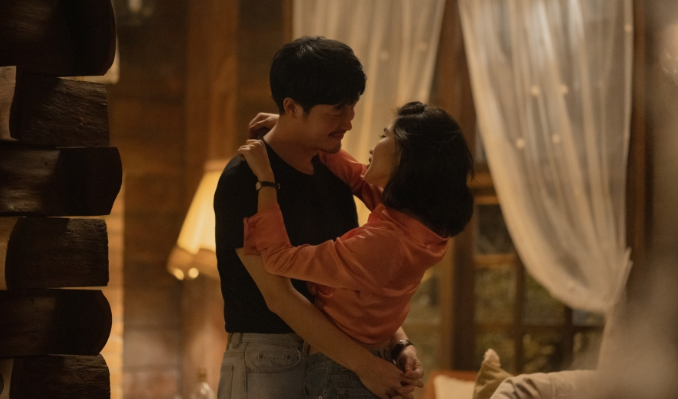
Tomb Watcher's average rating on IMDb is 5.6, and on MyDramaList it is 7.2, which means most viewers liked the overall idea.
The critics mostly thought the same. It is relatively interesting, the performances are reasonable, and the atmosphere is well produced. However, it clings onto clichés and lacks emotional and psychological depth.
Symbolism
If you're like me and constantly try to get the most out of diamonds in the rough, then you might be able to see the occasionally intriguing symbolism in this movie.
Isolation
This movie's greatest strength is how it makes you uncomfortable, psychologically speaking. By coliving with death in a very literal sense, Chev and Ros are forced to face not only the corpse but also their own skeletons in the closet. The tomb becomes a constant reminder of their betrayal and guilt, and soon is impossible to ignore.
The relationship between them, the widower and his lover, should be an escape to a new start but is soon overcome by paranoia. Lunthom, even dead, is undeniably among them. Her presence in the tomb is the embodiment of the couple's subconscious, and they simply can't ignore it.
The isolated house only makes this more obvious. More than just an actual, solid place, it represents a mental prison full of anxiety, emotional decline, and inescapable traps.
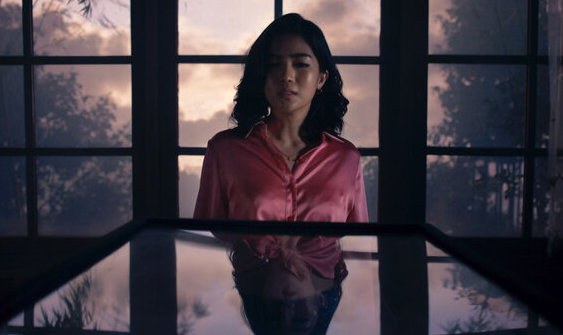
More Symbolism
The glass tomb partially works as a metaphor for how the couple's secrets can't be buried. Everything is right there, you can't deny it. It also represents how corrupted the relationship between husband and wife was, as it appears perfect but is actually rotting inside.
The one hundred days are full of symbolism, both regarding the plot and Eastern culture. In some Eastern mourning traditions, this number marks when the dead successfully move on to the next life. In this movie, this is a goal, a countdown. Each day brings forth more unpleasant truths.
As for Lunthom's preserved body, it is the (literal) embodiment of the unforgettable past. Even dead, she still exists as a memory and reminds us that some presences can't be suppressed. And the supernatural phenomena can be interpreted in two ways: as real ghosts or guilt.
In the end, the question is not just if these characters can hang on during all one hundred days, but if they can escape the consequences of their decisions, their guilt, and their secrets.
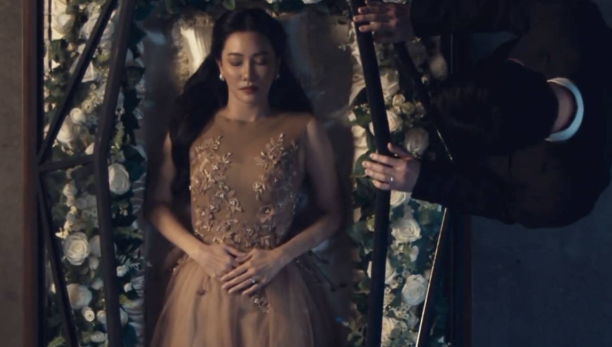
Cracks in the Glass
Despite the interesting premise, I could still spot some mistakes that make the movie a bit less creative overall. The first one is the pacing. Early on, it is too slow, lacks tension, and leans too much on exposition dialogue. It only picks up some speed when it approaches the climax, obviously, and this is when the suspense the genre is known for actually shows up and makes the story interesting.
Woranuch Bhirombhakdi's ghostly presence as the wife is almost cartoonish, which makes the entire movie a lot less horrifying. Maybe, to keep the story a bit more thrilling, they could have made her a bit less explicit and more subtle.
And why not explore the spiritual guide character that shows up halfway through and is an unforgettable presence? Instead, they decided to make us believe this character was going to add something to the plot but just left him as a quick footnote. It was nearly unnecessary.
Another problem is that it insists on clichés. The script constantly leads us through noisy doors, characters that wake up jumping from nightmares, sudden shadows, and jumpscares, elements that just aren't scary if you enjoy Eastern horror movies and are tired of Hollywood productions. They execute it well enough, but adding these elements to the scripts at all makes the psychological aspect of the movie, as well as its symbolism, weaker. They could have taken a few more risks instead of going for centuries-old formulas.
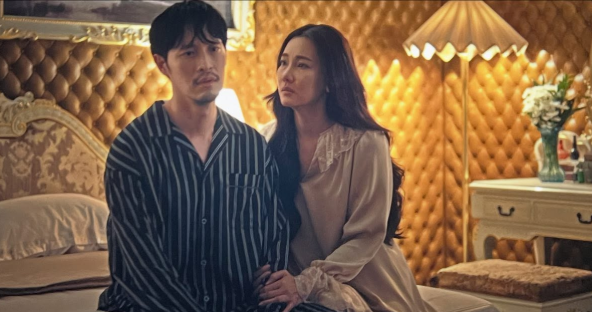
The shallow characters and the relationships between them only weaken the story. Besides, of course, the three main characters themselves: they could have explored the love triangle between the widower, the late wife, and the lover a bit more and shown us the emotional weight of their desire, guilt, and rivalry. However, this entire relationship is just a background for the jumpscares, and I believe they missed out on the opportunity to go deep into their motivations and contradictions.
They don't show us how the wife fell sick at all. It's simply something that happened to her, without any realistic reason for it. It's almost as if she literally died of sadness.
Not to mention they don't follow the basic cinema rule of "show, don't tell". Chev explicitly tells us he wasn't satisfied with his wife; they never show us that on-screen, in some scene that would show us how this couple, who looked so in love in the opening scenes, came to this. This makes us feel as if, from the very start, Chev never felt any love for Lunthom.
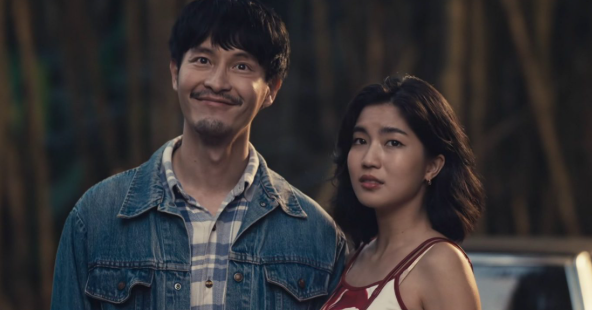
The movie also leans pretty hard on the Jungian Hera archetype and pretty much dooms the entire narrative as a result. They make Ros the only victim of Lunthom's revenge for what was her husband's betrayal as well. The late wife directs all her anger at the lover until the end of act three, when she finally starts torturing her husband. She acts just like vengeful Hera, who always punishes Zeus' lovers and leaves the king of Olympus unpunished for his disloyalty. This could annoy viewers that can see how this dynamic is unbalanced and unfair.
Finally, the ending, despite being visually impactful, clearly shows that they decided to go for shock value instead of exploring a few plot points or throwing some light on them. The suggestive metaphor for "facing the past" is all undone in a rushed ending.
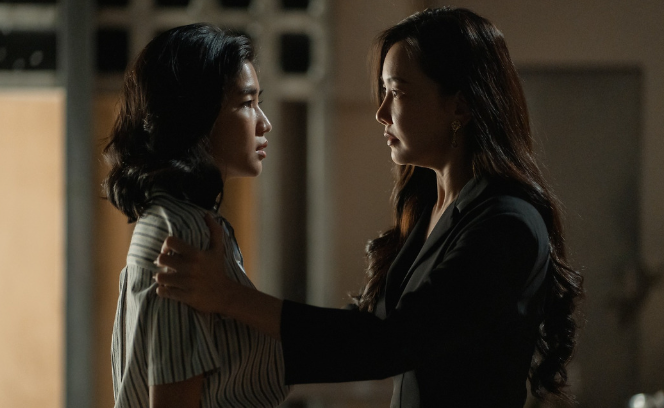
Is It Worth a Watch?
Depends. If you want a deep psychological thriller that makes your gears turn, you should look for something else. But if you enjoy cliché jumpscares, metaphors, and the discomfort all "popcorn horrors" give you, this could be a fun experience.
In the end, this movie is like cheap chocolate: it is only 25% real chocolate, but it does the trick.
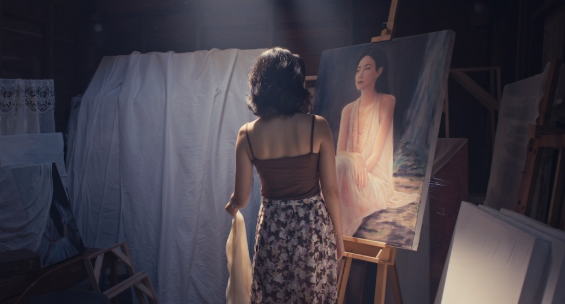
What about you? Do you enjoy horror movies full of tension as well as clichés, or do you prefer deeper, disturbing movies, like Midsommar and The Wailing? Will you watch Tomb Watcher or bury it for good? Tell us in our comment section below!
Thank you for reading, and see you next time!
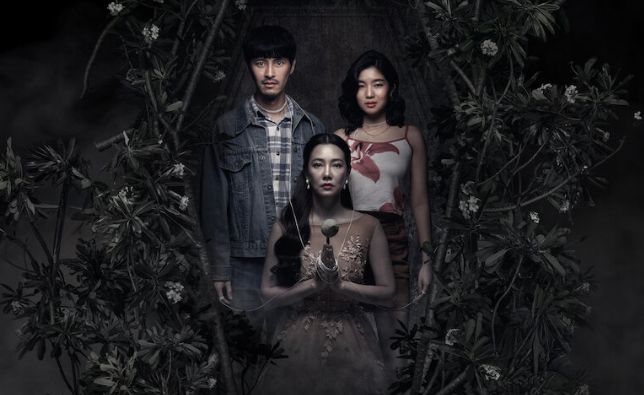












— commentaires 0
, Réactions 1
Soyez le premier à commenter